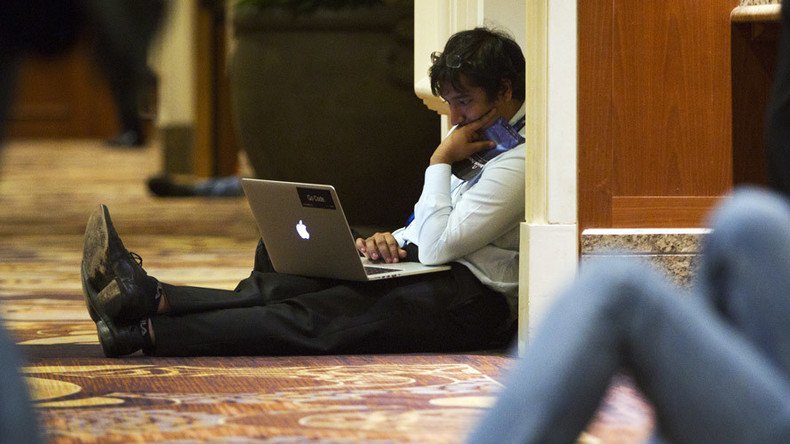Apple launches opposition to British govt’s surveillance powers bill

Tech giant Apple has called for an overhaul of the UK’s draft Investigatory Powers Bill, warning the surveillance powers may “weaken security of law-abiding citizens.” The California-based firm submitted objections to the legislation on Monday.
“We believe it would be wrong to weaken security for hundreds of millions of law-abiding customers so that it will also be weaker for the very few who pose a threat,” Apple said.
Home Secretary Theresa May presented a draft of the Investigatory Powers Bill, dubbed the Snooper’s Charter by its detractors, to Parliament in November. The bill would give security services and police unfettered access to the records of Britons’ web use. It would also impose obligations on telecommunications agencies to hand over data to security services.
Apple said of the bill: “It would also likely be the catalyst for other countries to enact similar laws, paralyzing multinational corporations under the weight of what could be dozens or hundreds of contradictory country-specific laws.”
The company also argued the bill would require companies to weaken their encryption standards.
“In this rapidly evolving cyber-threat environment, companies should remain free to implement strong encryption to protect customers,” Apple wrote.
In November, Apple CEO Tim Cook signaled opposition to the bill, saying: “If you halt or weaken encryption, the people that you hurt are not the folks that want to do bad things. It’s the good people. The other people know where to go.”
READ MORE:Science of snooping: Internet spying cost & feasibility examined by MPs
Apple expressed concern that the bill would force tech companies to hack into their own devices if ordered to do so by the security services.
“It would place businesses like Apple – whose relationship with customers is in part built on a sense of trust about how data will be handled – in a very difficult position,” Apple said.
“The creation of backdoors and intercept capabilities would weaken the protections built into Apple products and endanger all our customers. A key left under the doormat would not just be there for the good guys. The bad guys would find it too.”
Google, Facebook, Twitter, Yahoo and Microsoft are jointly submitting evidence expressing similar concerns to the same parliamentary committee, the Financial Times reports.












